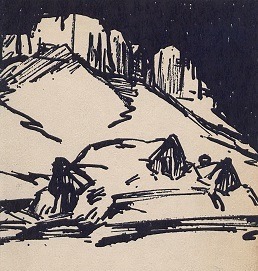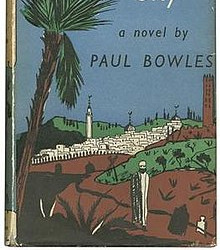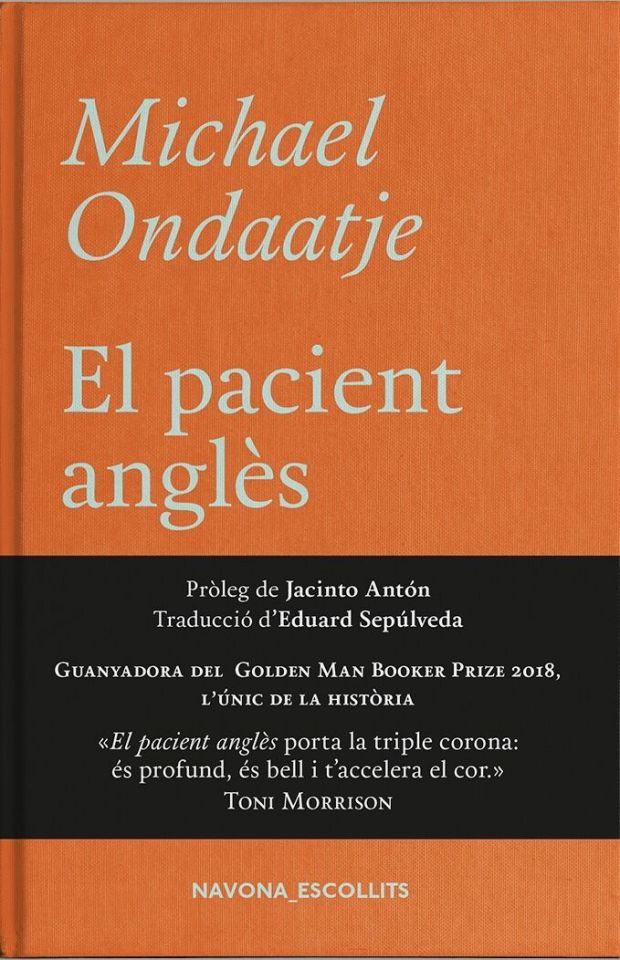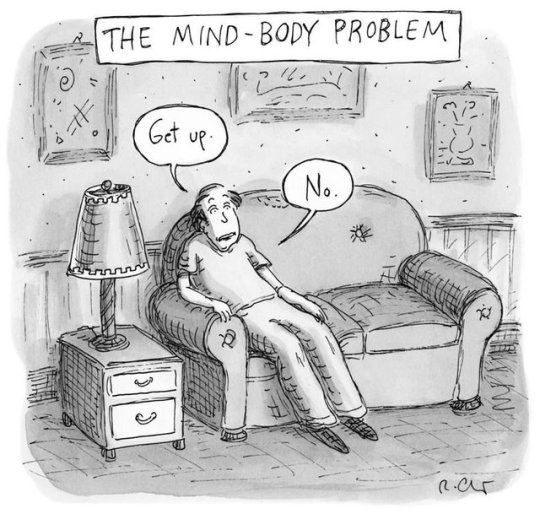Text
«The sun was shining, the shadows cast by the croft long as those of some mighty palace. No part of night or day wears such beauty as the time of the sun's rising, for then there is quiet, loveliness and splendour over everything. And now over everything there was quiet, loveliness and splendour. The song of the birds was sweet and happy. The mirror-like lake and the smoothly flowing river gleamed and sparkled with a silvery, entrancing radiance. The Bluefells lay gazing in rapture up at their heaven, as if they had nothing in common with this world. And in the unsubstantiality of its serene beauty and its peaceful dignity, the valley too seemed to have nothing in common with this world. There are times when the world seems to have nothing in common with the world, times when one can no more understand oneself than if one had been immortal.
No one awake, or anything like awake, on the croft, and yet the lad had never known such a day. He sat down in the grass, with his back to the garden wall, and began thinking. He began thinking of America, the glorious land across the ocean, the America in which he could have been anything he chose. Had he lost it for good and all, then? Oh, well, it mattered little. Love is better; love is more glorious than America. Love is the one true America.»

Independent People – Halldór Laxness, trad. J.A. Thompson (1934)
0 notes
Text
2023
Llibres (nous i vells) que m'ha agradat llegir aquest any
All the Pretty Horses - Cormac McCarthy (1992)
«I wanted very much to be a person of value and I had to ask myself how this could be possible if there were not something like a soul or like a spirit that is in the life of a person and which could endure any misfortune or disfigurement and yet be no less for it. If one were to be a person of value that value could not be a condition subject to hazards of fortune. It had to be a quality that could not change. No matter what. Long before morning I knew that what I was seeking to discover was a thing I’d always known. That all courage was a form of constancy. That it was always himself that the coward abandoned first. After this all other betrayals came easily.
I knew that courage came with less struggle for some than for others but I believed that anyone who desired it could have it. That the desire was the thing itself. The thing itself. I could think of nothing else of which that was true.»
El último encuentro - Sándor Márai (1942)
«Porque también existe eso, el instante: el tiempo trae y se lleva las cosas, de manera arbitraria, y no somos sólo nosotros quienes ponemos nuestras acciones y sus circunstancias en el marco del tiempo. A veces ocurre que el instante trae una posibilidad, y esa posibilidad tiene su momento exacto, y si el instante pasa, ya no puedes hacer nada de nada.»
Agua y jabón - Marta D Riezu (2021)
«Tarde o temprano llega un frío terrible.
Somos jóvenes, fuertes y nos va más o menos bien, pero en algún momento de la vida pasaremos por una crisis, que puede tomar mil formas: soledad, desazón inexplicable, enferemdad, desajuste químico, ruptura, apatía. Y llegaremos a la intemperie.
La música, el arte, las lecturas, la filosofía; con lo vivido, lo escuchado y lo reflexionado se crea un búnker mental. Pero hay que tener los deberes hechos; uno pierde a la madre y no piensa: bueno, ahora voy a ponerme a escuchar Cadena Dial, a ver si me alivia. Se trata, dice Joan Margarit, de "convertir el dolor en tristeza. El dolor no se puede gestionar; la tristeza sí."»
The Black Dahlia - James Ellroy (1988)
https://www.independent.co.uk/arts-entertainment/books/reviews/book-of-a-lifetime-the-black-dahlia-by-james-ellroy-2289429.html
Matar el nervi - Anna Pazos (2023)
«No tengo hijos ni perros ni marido y quizá es parte del problema. Es un pensamiento nuevo, cristalino, que irrumpe con una claridad cruel el día que se funde la bombilla del baño y se emboza el inodoro y no tengo nadie en quien delegar la tarea de resolverlo. Este pensamiento es como una cucaracha tóxica que se ha hecho un nido en mi oreja. Me susurra a todas horas que una vida solitaria es deprimente y antinatural, que los fuegos artificiales se acaban tarde o temprano, que el maquillaje cae y hay que tener a alguien al lado con quien emprender el largo camino hacia casa. Todo el mundo en el fondo, me asegura la cucaracha, conoce y acepta este hecho ancestral, y solo fingen creer que es posible una vida atomizada e independiente. Pero cada vez menos gente tendrá ánimo para fingir y las cosas volverán mansamente a su orden natural, y los solitarios y sobre todo las solitarias vagarán por el purgatorio marcados por el aura pestilente del fracaso.»
At the Gates of the Animal Kingdom - Amy Hempel (1990)
«I play back everything that has happened to me before this. I want to ask Big Guy if he is doing this, too. I want him to know what it clearly seems to me: that if it's true your life flashes past your eyes before you die, then it is also the truth that your life rushes forth when you are ready to start to truly be alive.»
Berta Isla - Javier Marías (2017)
https://elpais.com/cultura/2017/12/15/babelia/1513344132_636848.html
«Frente a esa idea de la novela como una forma de conocimiento, yo la veo como una forma de reconocimiento», me dijo Marías una vez, en el curso de una conversación sobre Tu rostro mañana. «Con esos autores que ven, que se atreven a mirar las cosas como son, uno a menudo tiene una fuerte sensación de verdad precisamente porque reconoce lo que dicen. Uno dice: ‘Sí, esto es así, es verdad’. Y no te están haciendo una revelación, no estás accediendo a un conocimiento nuevo. Estás viendo algo que sabías pero que no sabías que sabías.»
0 notes
Text
«Uno se pasa toda la vida preparándose para algo. Primero se enfada. A continuación quiere venganza. Después espera. Él llevaba mucho tiempo esperando. Ya no se acordaba ni siquiera del momento en que el enfado y el deseo de vengaza habían dado paso a la espera. El tiempo lo conserva todo, pero todo se vuelve descolorido, como en las fotografías antiguas, fijadas en placas metálicas. La luz y el paso del tiempo desgastan los detalles precisos que caracterizan los rostros fotografiados. Hay que mirar la imagen desde distintos ángulos y buscar la luz apropiada para reconocer el rostro de la persona cuyos rasgos han quedado fijados en el espejo ciego de la placa. De la misma manera se desvanecen en el tiempo todos los recuerdos humanos.»
El último encuentro - Sándor Márai (1942)
0 notes
Text
According to Loftus, memories are reconstructed, not replayed. “Our representation of the past takes on a living, shifting reality,” she has written. “It is not fixed and immutable, not a place way back there that is preserved in stone, but a living thing that changes shape, expands, shrinks, and expands again, an amoeba-like creature.”
*
Loftus’s career has been defined by her recognition that the language we use to describe an event will change the way we remember it.
*
«That’s the frightening part—the truly horrifying idea that what we think we know, what we believe with all our hearts, is not necessarily the truth»
*
«That’s so interesting: when you have such a clear memory and then you go, Well, how did I come to know what I believe? And you can’t think of any way in which you could have acquired that knowledge. Did something happen in a dream and I remembered it as true?»
2 notes
·
View notes
Text
2021
Els llibres que més m’han agradat aquest any
Revolutionary Road - Richard Yates (1961)
https://epiphanyzine.com/features/2018/4/11/on-marriage-and-other-ridiculous-delusions-in-richard-yates-revolutionary-road

The Sheltering Sky - Paul Bowles (1949)
https://parlar-per-parlar.tumblr.com/post/665211900824584192/when-there-was-no-more-sound-she-sat-down-on-her

The Corrections - Jonathan Franzen (2001)
«He was remembering the nights he’d sat upstairs with one or both of his boys or with his girl in the crook of his arm, their damp bath-smelling heads hard against his ribs as he read aloud to them. These were evenings, and there were hundreds of them, maybe thousands, when nothing traumatic enough to leave a scar had befallen the nuclear unit. Evenings of plain vanilla closeness in his black leather chair; sweet evenings of doubt between the nights of bleak certainty. They came to him now, these forgotten counterexamples, because in the end, when you were falling into water, there was no solid thing to reach for but your children.»

Corazón tan blanco - Javier Marías (1992)
«Listening is the most dangerous thing of all, listening means knowing, finding out about something and knowing what’s going on, our ears don’t have lids that can instinctively close against words uttered, they can’t hide from what they sense they are about to hear, it’s always too late.»

The Prime of Miss Jean Brodie - Muriel Spark (1961)
https://www.theguardian.com/books/2015/mar/23/100-best-novels-the-prime-of-miss-jean-brodie-muriel-spark

2 notes
·
View notes
Quote
When there was no more sound, she sat down on her pallet for a while, presently lying out flat with her head on the pillow as if to sleep. But her eyes remained open, staring upward almost as fixedly as those beside her. These were the first moments of a new existence, a strange one in which she already glimpsed the element of timelessness that would surround her. The person who frantically has been counting the seconds on his way to catch a train, and arrives panting just as it disappears, knowing the next one is not due for many hours, feels something of the same sudden surfeit of time, the momentary sensation of drowning in an element become too rich and too plentiful to be consumed, and thereby made meaningless, nonexistent. As the minutes went by, she felt no impulse to move; no thought wandered near her.
Now she did not remember their many conversations built around the idea of death, perhaps because no idea about death has anything in common with the presence of death. She did not recall how they had agreed that one can be anything but dead, that the two words together created an antinomy. Nor did it occur to her how she once had thought that if Port should die before she did, she would not really believe he was dead, but rather that he had in some way gone back inside himself to stay there, and that he never would be conscious of her again; so that in reality it would be she who would have ceased to exist, at least to a great degree. She would be the one who had entered partially into the realm of death, while he would go on, an anguish inside her, a door left unopened, a chance irretrievably lost.
She had quite forgotten the August afternoon only a little more than a year ago, when they had sat alone out on the grass beneath the maples, watching the thunderstorm sweep up the river valley toward them, and death had become the topic. And Port had said: «Death is always on the way, but the fact that you don't know when it will arrive seems to take away from the finiteness of life. It's that terrible precision that we hate so much. But because we don't know, we get to think of life as an inexhaustible well. Yet everything happens only a certain number of times, and a very small number, really. How many more times will you remember a certain afternoon of your childhood, some afternoon that's so deeply a part of your being that you can't even conceive of your life without it? Perhaps four or five times more. Perhaps not even that. How many more times will you watch the full moon rise? Perhaps twenty. And yet it all seems limitless.» She had not listened at the time because the idea had depressed her; now if she had called it to mind it would have seemed beside the point. She was incapable now of thinking about death, and since death was there beside her, she thought of nothing at all.
Paul Bowles, The Sheltering Sky (1949)
4 notes
·
View notes
Text
4.9.20
Haarlem. Hem tornat i ha vingut la tardor d’un cop; agradablement, segons com. Amb això, han deixat d’aparèixer llimacs al terra de la cuina quan es fa de nit (sempre d’un en un, individuals).
Veig el jardí i sé que a la nostra propera casa és molt probable que no en tinguem, i per tant que aquesta escena recurrent de la rutina —jo mirant pel vidre de la sala a les fosques, buscant alguna cosa mental entre les fulles— no es repetirà. En vindran d’altres que la reemplaçaran; en un sentit pràctic, almenys, no a la memòria. Les coses que hem vist son nostres i son el que som; som el que son.
El que venia a dir és que si volgués escriure un poema sobre aquesta casa —un poema d’aquests d’ara, tan tallats tots del mateix patró— hi esmentaria el parquet, el lli, i totes les marques de la teva presència: un jersei que penja del pom de la porta de l’armari, la nota de color d’una bossa rosa o taronja, el determinat ordenament d’un conjunt d’objectes, el punt d’aroma deixat per una crema feta servir la nit abans, un coixí de ratlles blaves. Tots els detalls insignificants que en el seu conjunt formen una idea de llar —la nostra— i, justament per això, esdevenen preuats, gairebé innegociables.
També l’olor lleugerament alienant, gens familiar, de quan hi he entrat després d’un període llarg d’absència; la sensació de vertigen que em dona un sostre que intueixo potser mig pam més alt que un d’espanyol. I també la sempre inescapable pols, i els llimacs i les aranyes.
S’acosta un temps d’adéus, i amb ells la recol·lecció, i les converses amb què fixarem un fragment més d’història personal. La mirada del record serà inevitablement arbitrària, però definitiva, i amb això avançarem cap a un nou lloc, el proper, esforçadament.
0 notes
Photo

«Es dreça al jardí on ha estat treballant i mira a la distància. Ha notat un canvi en el temps. Ve una altra ràfega de vent, un blec de soroll en l’aire, i els xiprers alts oscil·len. Es gira i se’n va pendent amunt cap a la casa, salta un mur baix, nota les primeres gotes de pluja als braços nus. Creua la llotja i entra ràpidament a la casa. A la cuina no s’hi atura, sinó que la travessa i puja les escales a les fosques, i llavors segueix pel llarg passadís, al final del qual hi ha una falca de llum, que ve d’una porta oberta. Gira cap a l’habitació que és un altre jardí —aquest, fet d’arbres i emparrats pintats pels murs i pel sostre—. L’home jau al llit, amb el cos exposat a la brisa, i gira el cap lentament en sentir-la entrar.»
He tingut l’honor de traduir El pacient anglès de Micahel Ondaatje per a Navona Editorial (2021).
0 notes
Quote
When I'm not writing, it seems to me that the day-to-day experiences that I have confronted in my life, the happy ones, but most of all the painful ones, the ones that flay or wound me, happen to me in vain. They slide over my life, they don't leave a mark, they have nothing to attach themselves to, they happen as they might happen to a tree, my beloved olive three in the little garden. Conversely, when a book is in progress, everything comes to my aid, everything is useful to me, I grab everything within my reach to take advantage of it. At every hour of the day, whether I am walking on the beach or strolling up the path through the scrubland to the old tower, whether I'm swimming in the sea or reading in the little garden, when I'm sleeping, a tireless process of ripening is still at work. Even if I'm not physically writing anything at my computer, the book has been launched, the writing is under way. Unlike the periods in my life when I'm not writing, the new project, however early it is in its development, however rudimentary its outline, becomes the magnet, or the mooring, where the thousands of nutritious substances that I glean around me from the outside world mass together like mussels on a mussel-bed, while the new book, fertilised by these accumulated contributions, is already starting to grow and spread in my mind.
Jean-Philippe Toussaint, Football (trad. Shaun Whiteside)
1 note
·
View note
Text
Acaballes d’estiu
(llegint un llibret de W.C.W.)
Una fulla mig esgrogueïda
penja d’un fil d’aranya—
encartronada, giragonsa erràtica
atrapada i cau del mànec de la barbacoa
plena de cendra i restes del caliu
de la festa del pont d’agost
que ningú hem pensat a netejar,
encara.
[agost 2018]
1 note
·
View note
Quote
I happen to have occasionally entered a church and sat there in peace a while with the people. I've always liked the fact that people can be together in there, without having to talk to one another. If they could chat, they'd instantly start telling each other nonsense, or gossip, they'd start making things up and showing off. But here they sit in the pews, each one deep in thought, mentally reviewing what has happened lately and imagining what's going to happen soon. Just like everyone else, I would sit in a pew and sink into a sort of semi-conscious state. My thoughts would move idly, as if coming from outside me, from other people's heads, or maybe from the heads of the wooden angels positioned nearby. Every time, something new occurred to me, something different than if I were doing my thinking at home. In this way the church is a good place.
Sometimes I have felt as if I could read the minds of the other people in here if I wanted to. On several occasions I seemed to hear other poeple's thoughts: 'What pattern should we have for the new wallpaper in the bedroom? Is the smooth kind better, or the kind that's stamped with a subtle design? The money in my account is earning too little interest, other banks give better rates, first thing on Monday I must check their offers and transfer the cash [...]'.
And would there be anything wrong with such thoughts? Are mine any different? It's a good thing that God, if he exists, and even if he doesn't, gives us a place where we can think in peace. Perhaps that's the whole point of prayer – to think to yourself in peace, to want nothing, to ask for nothing, but simply to sort out your own mind. That should be enough.
Olga Tokarczuk, Drive your Plow over the Bones of the Dead (trad. Antonia Lloyd-Jones)
4 notes
·
View notes
Quote
The sun had come up brilliantly after a heavy rain, and the trees were glistening and very wet. On some impulse, plain exuberance, I suppose, the fellow jumped up and caught hold of a branch, and a storm of luminous water came pouring down on the two of them, and they laughed and took off running, the girl sweeping water off her hair and her dress as if she were a little bit disgusted, but she wasn’t. It was a beautiful thing to see, like something from a myth. I don’t know why I thought of that now, except perhaps because it is easy to believe in such moments that water was made primarily for blessing, and only secondarily for growing vegetables or doing the wash. I wish I had paid more attention to it. My list of regrets may seem unusual, but who can know that they are, really. This is an interesting planet. It deserves all the attention you can give it.
Marilynne Robinson, Gilead (2004)
8 notes
·
View notes
Text
Horari d’hivern
Idees inconnexes: primaveres successives vindran, cerimonioses, com l’amant d’Henri Matisse d’un sol traç un rostre el mateix teatre consentit t’he dit: que d’hora es fa de nit un fil de fred s’escola per la bústia dus l’hivern aferrat a l’abric i un sospir reconeixible — gent que sempre sospira, tota plena de fulls en blanc — les juntes de formigó, el tacte que tenen ja sé com acabarà frases rodones inabarcables són tan clars els límits dels altres que te’n penediries fluïda com un meandre cabalós i traïdor sentències o rebequeries tot de dubtes poc explicables deixos gairebé inacceptables i en els silencis importants el meu cap és un erm ple de plecs erràtics la lluna baixa i em veu parapetat clavem en les faccions de l’altre ràfegues i consideracions finals carbó de la memòria desajustos circadians, potser. Fulles grogues brutes de pneumàtic, fetes pasta — el tacte que tenen la pols, l’humitat la lluna i la fosca fixa’t com un quart de traç t’amaga el rostre que poc a poc es desfà. 15.11.2018
0 notes



